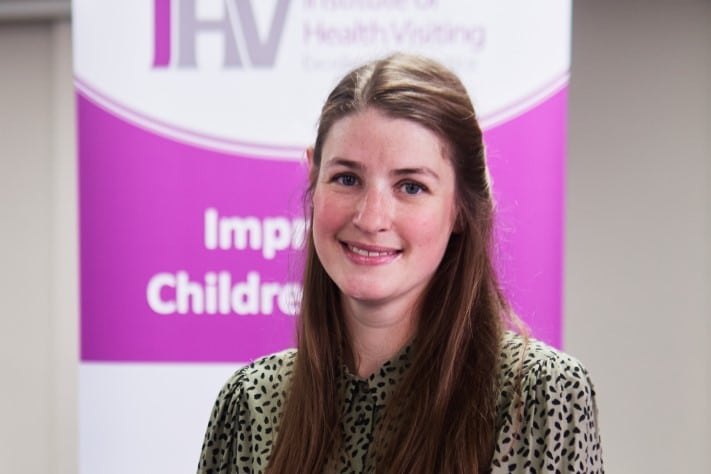8th March 2023
In support of No Smoking Day (8 March) , we are delighted to share a Voices blog by Louisa Clifford-Taylor, Research Associate at the Institute of Health Visiting.

Louisa Clifford-Taylor, Research Associate, iHV
The message for this year’s No Smoking Day is “Never give up on giving up”.
- 22% of women report smoking in the 12 months before pregnancy
- Although many quit during pregnancy, postpartum relapse is common (Notley et al, 2015)
- Smoking is the single biggest modifiable risk factor for poor birth outcomes, and health visitors have a key role to play in supporting smoke-free pregnancies and to sustain behaviour change postnatally
Despite nearly all women who quit wishing to remain abstinent after birth, up to 75% will return to smoking within 12 months postpartum.
The importance of smoking cessation
The evidence is clear that smoking in pregnancy contributes to significant adverse outcomes for mothers and their babies with long-term, far-reaching consequences for health and inequality. Smoking during pregnancy causes up to 2,200 premature births, 5,000 miscarriages and 300 perinatal deaths every year in the UK.
Babies’ and children’s immature respiratory and immune systems make them especially vulnerable to the effects of passive smoking, which increases their risk of developing: a number of respiratory conditions; attention and hyperactivity difficulties; learning difficulties; problems of the ear, nose and throat; obesity; and diabetes. Public health interventions that can support women to remain smoke-free during pregnancy and postnatally have an important part to play in improving health and reducing inequalities for the whole family.
The BabyBreathe Study – A Randomised Controlled Trial of a Complex Intervention to Prevent Return to Smoking Postpartum
The Institute of Health Visiting is a collaborator in a large randomised controlled trial study called BabyBreathe which is evaluating a package of support to help women who have stopped smoking while pregnant, or in the 12 months before pregnancy, to remain smoke-free.
The trial is being delivered in partnership with sites across Norfolk, London, the North East and Scotland, with the aim to recruit 880 participants in total. So far, with the support of the research teams, 566 participants have been randomised into the trial. Of those, 282 are receiving the BabyBreathe intervention from a health visitor.
The BabyBreathe study team are grateful for the support from clinical staff at the study sites, whose efforts with recruitment and intervention delivery, during particularly challenging times, have enabled us to reach 64% of our target.
Research midwives at Norfolk and Norwich University Hospitals, shared their experiences of recruiting participants to the BabyBreathe trial:
“We feel it is innovative to be part of this important study. It’s a great opportunity to be part of a trial that has the potential to change practice and support women and their families to improve their outcomes. We understand that it is really difficult to achieve smoking cessation, and to be included in something which can remove the stigma and provide encouragement is a really positive thing. The majority of women want to be a part of it which is a wonderful feeling. It is also great to be able to put Norwich forward as the main hub and leading area.”
A BabyBreathe-trained health visitor, who recently began offering the intervention to participants in North Tyneside, shared their experience of the trial:
“Public health and wellbeing are high on the government’s agenda and North Tyneside Council are invested in promoting healthy choices.
“…. The Babybreathe research project looks at whether support for those who have given up smoking before or during pregnancy, including help to recognise the times they may feel tempted to smoke, reduces smoking relapse. This will help us to understand whether there are benefits to ongoing support, and our public health role beyond a one-off question about smoking history.
“Here in North Tyneside, a relatively small number of women have consented to be part of the Babybreathe research project so far, and the intervention is currently being delivered by four health visitor Team Leads. We have been well supported throughout the process and we can appreciate that the extra questions that we ask as part of our contacts, while taking extra time, are meaningful for the women and our practice.”
We hope that health visitors will be able to use the learning from this study to improve their practice and support more families to ‘Never give up on giving up’.
Recruitment to the BabyBreathe study is ongoing with the study anticipated to end in December 2024. The findings will be published shortly after.





